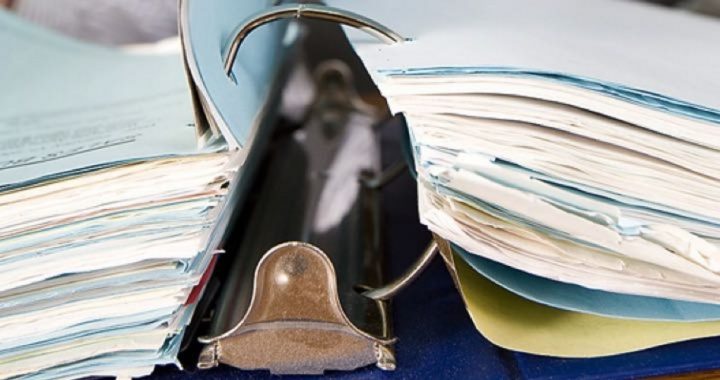
Almost a week after the deadline for the FBI to hand over to the House Judiciary Committee a trove of documents related to the FISA abuse scandal, the Clinton e-mail investigation, and the firing of former FBI Deputy Director Andrew McCabe, the Department of Justice (DOJ) and FBI of has appointed Chicago’s top federal prosecutor, U.S. Attorney for the Northern District of Illinois John Lausch to oversee that process. That appointment was made Monday and by Wednesday, Lausch was already making excuses.
President Trump accused the FBI and DOJ of “stalling” and having something “to hide.” The president tweeted on April 2, “So sad that the Department of ‘Justice’ and the FBI are slow walking, or even not giving, the unredacted documents requested by Congress. An embarrassment to our country!” He followed up with another tweet, asking, “What does the Department of Justice and FBI have to hide?”
President Trump’s accusations stand on firm ground, since the FBI and DOJ had — without any apparent justification — not turned over the 1.2 million documents requested by the congressional committee.
President Trump was not alone in his criticism of the DOJ dragging its feet. After the FBI and DOJ failed to turn over the documents the committee had requested, the committee issued a congressional subpoena requiring the DOJ to produce the documents by April 5. When that deadline passed with “no documents” having been turned over, The Hill reported:
Republicans on the House Judiciary Committee are infuriated by what they view as a stall by the Department of Justice (DOJ) in providing documents related to the panel’s investigation into the FBI’s decisionmaking during the 2016 presidential election, even under subpoena power.
Chairman Bob Goodlatte (R-Va.), who is leading a joint investigation with House Oversight and Government Reform Committee Chairman Trey Gowdy (R-S.C.), issued a subpoena two weeks ago after conservatives on his panel grew increasingly impatient about what they claim was the DOJ dragging its feet in turning over the documents they’ve repeatedly requested.
The deadline for the subpoena was set for Thursday at noon.
A Republican House Judiciary Committee aide told The Hill, “The Department of Justice has not yet complied with the subpoena and we are working with officials at DOJ to take immediate steps to comply with the subpoena and produce documents to the committee.”
And Representative Mark Meadows (R-N.C.) tweeted, “We got no documents from the Department of Justice. Just a phone call. This is unacceptable — it’s time to stop the games. Turn over the documents to Congress and allow us to conduct oversight.”
In the midst of this rousing game of dodge-the-law, DOJ spokeswoman Sarah Isgur Flores told The Hill the agency has had “ongoing communication with Goodlatte,” adding without giving any context, “He is aware of where his request stands.” Flores’ choice of words was interesting: A subpoena is more than a mere “request.”
As Thursday turned into Friday and the weekend approached, President Trump was tired of waiting for the FBI and DOJ to meet the legal requirements of the subpoena. He began to criticize and pressure Attorney General Jeff Sessions in regard to the lack of compliance with the subpoena. The result was the appointment of Lausch to oversee the process of the FBI and DOJ getting off their collective backsides and producing what the House Judiciary Committee has demanded.
As a Chicago ABC affiliate reported Monday:
New on the job in Chicago, U.S. Attorney John Lausch also has a new assignment coming straight from his boss: shepherd all of the documents that Congress wants for several of its most important investigations.
Attorney General Jeff Sessions, in the face of resurgent criticism from President Trump, has tapped Chicago’s top federal prosecutor John Lausch to oversee the Justice Department’s response to a congressional request for documents. Lausch, installed late last year to lead the U.S. attorney’s office in the Northern District of Illinois after being selected by Trump, will now supervise document transfers from the administration to Capitol Hill.
While Lausch’s appointment is intended to force the FBI and DOJ to stop “stalling,” there are indications that he may allow the status quo to continue. On Wednesday, Lausch seemed to be excusing the DOJ’s lack of compliance with the subpoena, saying that while the DOJ needs “to do much better” in producing the required documents, the “process” is to blame.
“We need to do better. We need to do much better,” he said, adding, “To be clear, the DOJ is not refusing to turn over anything. And, of course, Congress has — they have a right and obligation to do their job, which includes oversight.” He then went on to say, “What our job and what my job will be is to ensure that we have a process, a better process than we have had going forward so far.”
Someone should tell Lausch that you can either make a difference or make excuses; you can’t make both.
The 1.2 million documents the committee required by the subpoena relate to a litany of investigations over which the committee has oversight. Those investigations include the FBI’s handling (or, more accurately, mishandling) of the investigation into Hillary Clinton’s illegal use of a private, unsecure e-mail server and address during her tenure as secretary of state, as well as the firing of McCabe just days before he was set to retire. But perhaps the most immediately pressing investigation the documents could shed light on is the FISA abuse scandal.
A common theme running through many of the investigations is related to the crumbling Trump/Russia collusion narrative. Given that common thread, perhaps the question of what the FBI and DOJ have to hide isn’t such a mystery after all.
Photo: Clipart.com




